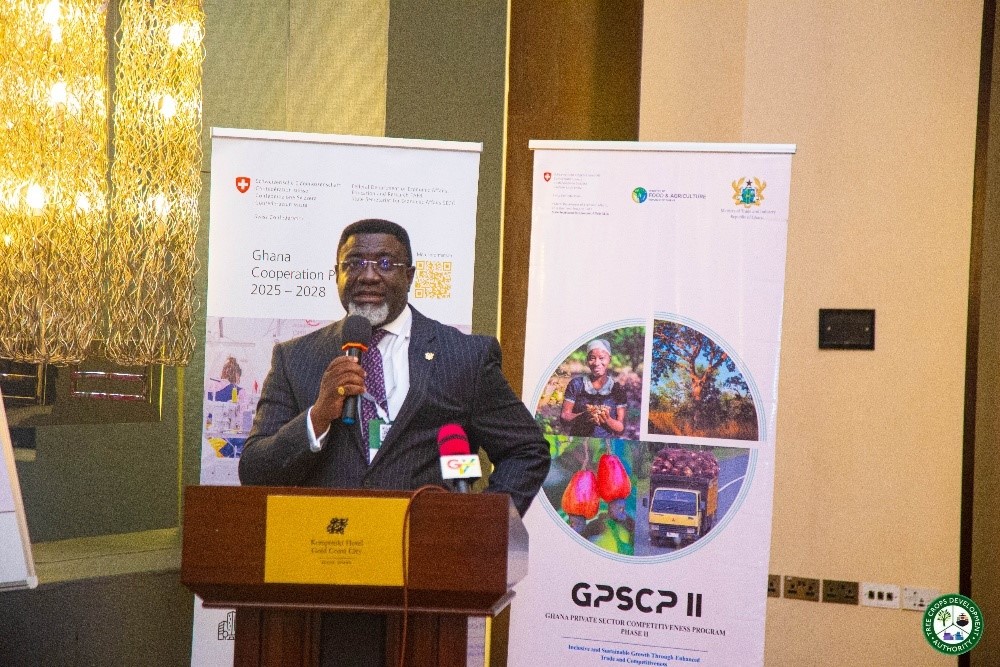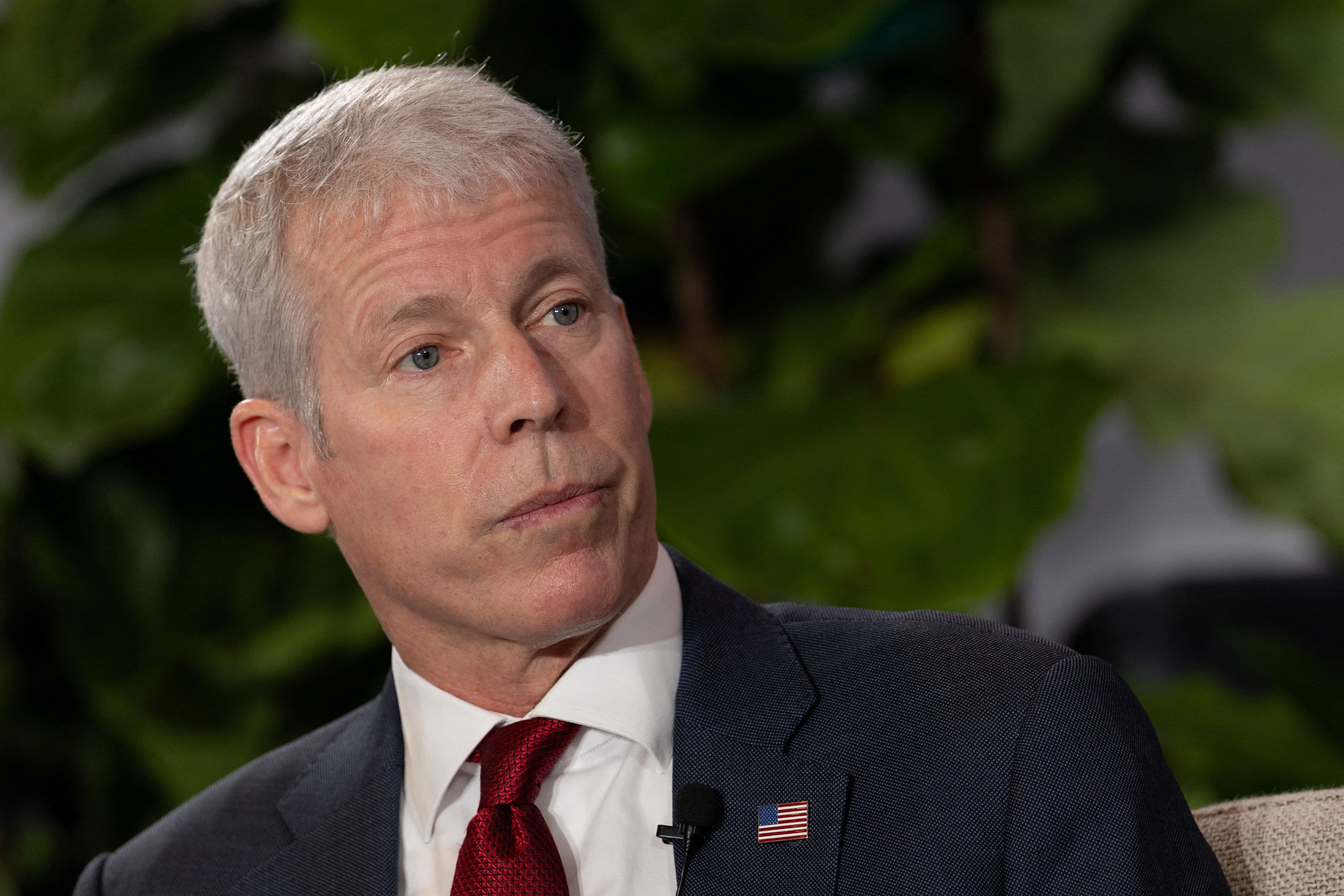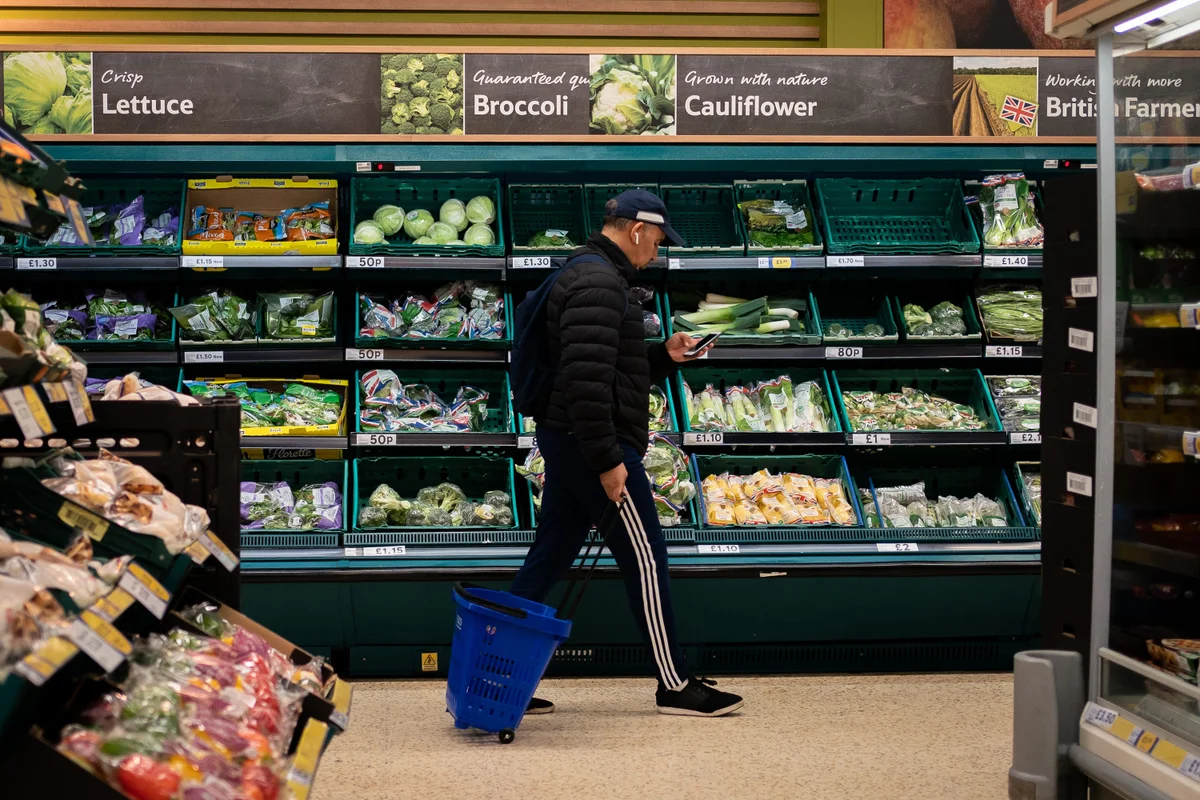By Francis
Copyright thebftonline

Experts in the cashew and oil palm value chain, along with development partners, have held a maiden policy dialogue to chart a sector-strengthening path and sustainable roadmap to maximise its economic impact.
The policy dialogue, which forms part of the Ghana Private Sector Competitiveness Programme phase two (GPSCP II), was held in partnership with the Tree Crops Development Authority (TCDA), NIRAS International Consulting, and Proforest Africa in Accra.
The GPSCP II, which is a bilateral initiative between the Swiss State Secretariat for Economic Affairs (SECO) with the funding support and the government of Ghana, aims to contribute to inclusive and sustainable growth through enhanced trade and competitiveness in the cashew and oil palm value chains.
The experts mention cashew and palm oil as key to economic diversification, with great potential for job creation and agricultural development.
The GPSCP II adopted three implementation modalities under the Market System Development (MSD) approach. Under the Strategic Cooperation Partnership (SCP) model, the programme aimed to collaborate closely with the TCDA to support it in achieving its mandate of creating and regulating a conducive environment for the growth and development of the target tree crops in Ghana.
With this backdrop, the maiden policy dialogue was held in Accra to deliberate on findings from a survey on the sector.
The event brought together key government officials, development partners, and industry stakeholders under the theme: “Building an Enabling Policy Environment for Developing a Competitive Oil Palm and Cashew Sector: Lessons from Around the World.”
Market Projections
It was projected that oil palm consumption, for instance, would double by 2050, driven by population increase from 450 million to 780 million, creating an unprecedented opportunity for strategic investment in palm oil production capacity across the region.
The current market demand projections for ECOWAS showed a combined consumption volume of 4.40 million tons, with import volume around 2.33 million tons, whilst local production is only 2.5 million tons.
By 2050, consumption is estimated to be 8.40 million tons with a population growth: 780 million people. This will present a supply gap and a potential for massive expansion, leading to investment opportunities nearly double the current production needed.
The convergence of demographic trends, available land resources, and market opportunities creates an ideal environment for developing a competitive palm oil industry. However, success requires coordinated policy frameworks that support sustainable development, technology transfer, and market integration while ensuring environmental protection and community benefits.
Ghana’s Oil Palm Problem
The market in Ghana is faced with unfair competition as illegal imports -often smuggled or deliberately undervalued and misclassified. This leads to severely undercut domestic prices by 15-20 percent, making locally refined products uncompetitive.
Secondly, enforcement deficiencies, such as chronically understaffed and under-resourced land border and market surveillance systems, fail to detect an estimated more than 40 percent of illegal shipments.
Furthermore, regulatory fragmentations- lack of a comprehensive, consistently enforced licensing framework create loopholes that importers exploit with impunity.
Also, revenue hemorrhage- widespread tax evasion on imported products results in annual losses exceeding US$78 million in uncollected VAT and import duties.
Chief Executive Officer of TCDA, Dr Andy Osei Okrah, emphasised that the cashew and oil palm sectors held immense potential to create jobs, diversify Ghana’s export portfolio and improve livelihoods.
However, he acknowledged that such potential could only be realised through coherent policies and a robust regulatory framework.
He said the Authority was strengthening collaboration with state institutions such as the Ghana Revenue Authority (GRA) -Customs Division to enhance monitoring and enforcement of export commodities.
Team Lead of GPSCP II, Julian Ofori Karikari, said, “This event indicates a step in the right direction to align policies that will support the activities of TCDA, especially cashew and oil palm,” she said.
The stakeholders underscored the need to strengthen TCDA’s regulatory mandate to be able to use a legislative instrument or ministerial directive to undertake two critical roles: Import licensing & registration regulation, and the TCDA monitoring and compliance wing for market & border enforcement.
Other high-level participants included Taylor Crabbe, NIRAS-GPSCP II Consultant, Dr Ashwini Sebastian, World Bank Team Lead for the Tree Crops Development Project, and Magdalena Wüst, Deputy Head of Cooperation at the Swiss Embassy in Ghana, who spoke on behalf of the Swiss State Secretariat for Economic Affairs.
The dialogue marks an important step in shaping policies to strengthen Ghana’s tree crops sector and improve its global competitiveness, particularly in cashew and oil palm.



